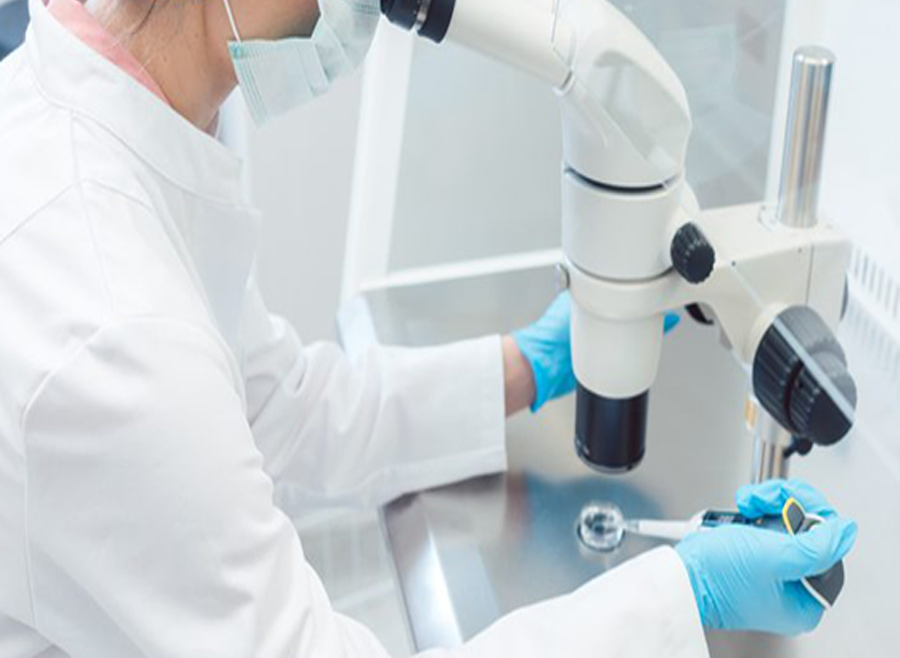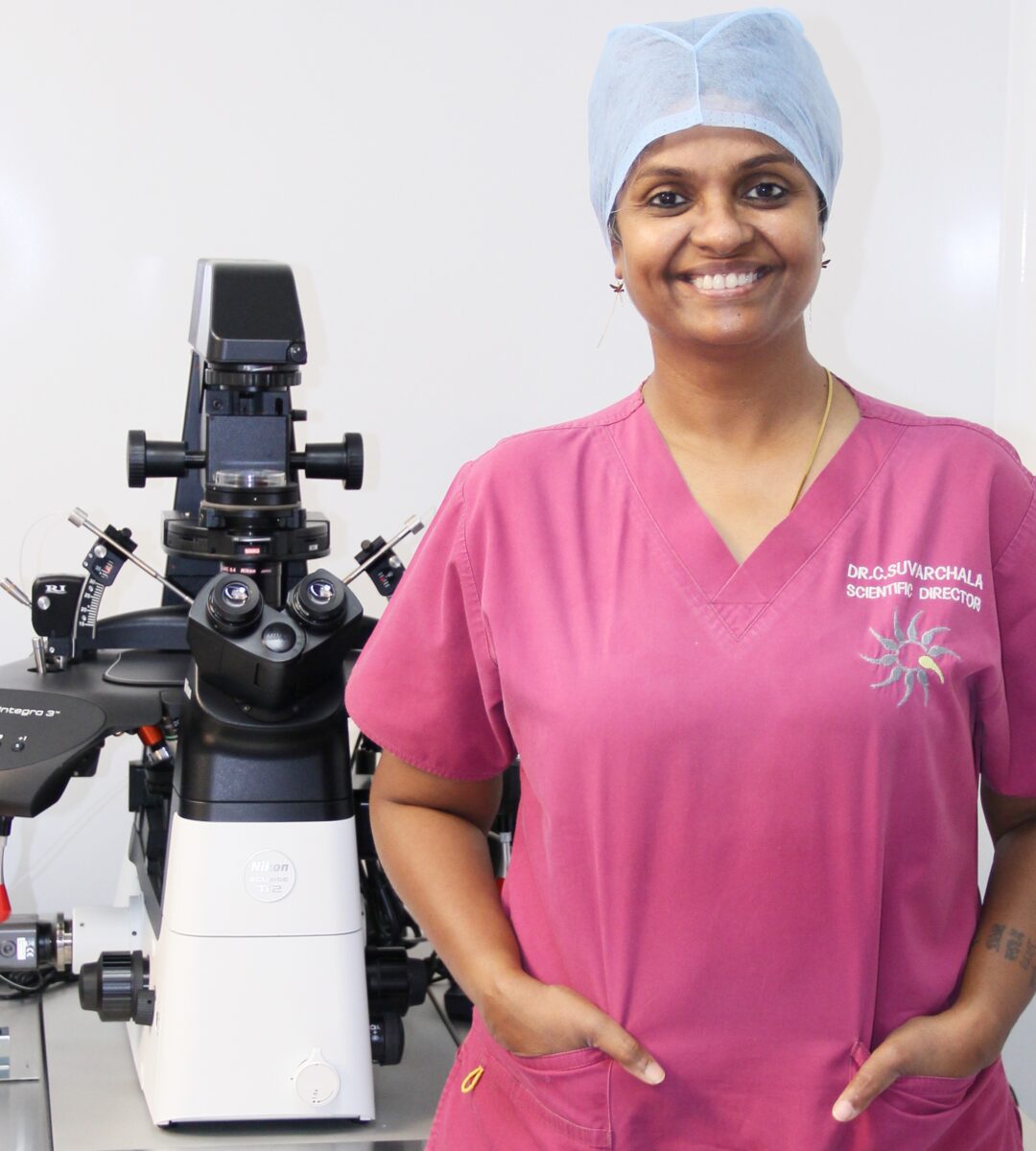ZIVA EDUCATION PROGRAM IN ANDROLOGY AND CLINICAL EMBRYOLOGY
Overview
The education programs in Andrology and Clinical Embryology have been conceived with the sole aim of training students in the field of Andrology and Embryology in order to bridge the gap between demand and supply for qualified trained embryologists and Andrology technicians. With an increase in patients struggling with fertility, there has been a rise in the number of IVF centers. However, not all centers have adequately trained embryologists and andrology technicians.
ZIVA Institute of training aims at providing extensive theoretical and practical training in reproduction and developmental biology thereby enabling students in its application in the field of Assisted Reproductive Technology (ART).
Objective
At the end of the courses the students shall be able to:
1) Demonstrate comprehensive knowledge and understanding of microscopic structure of the human cell and its organelles.
2) Comprehend normal anatomy and physiology of the male and female reproductive system and anomalies of the same.
3) Extensively analyze semen according to WHO 2010 guidelines.
4) Understand and assess various advanced sperm function tests.
4) Demonstrate knowledge of basic and systemic embryology including human genetics, genetic inheritance, gene regulation, immunology and stem cell therapy.
4) Develop a basic understanding of reproductive endocrinology.
5) Independently handle semen and its processing for techniques – Intrauterine Insemination (IUI),In – vitro fertilization (IVF) and Intra-cytoplasmic sperm injection (ICSI).
6) Identify and handle human oocyte in embryology laboratory
7) Competently handle human gametes in the scenario of IVF and ICSI.
8) Assess viability of embryos and their developmental competence with fair accuracy.
9) Cryopreserve human gametes and embryos, warm them and subsequently develop them to transfer into the uterus.
10) Should be well versed setting up an IVF laboratory according to standards available and well versed in quality control measures.
IUI TRAINING PROGRAM (PROTOCOLS & WORKSHOP)
IUI Training
Course Objectives
IUI Training course will help the applicants understand the sperm processing techniques. This course will be an intensive workshop to get a complete insight into the pre-requisites and techniques associated with Intra-Uterine Insemination (IUI). IUI Training course includes lectures on IUI Techniques, demonstration as well as Live Hands -on Training of Sperm Preparation procedures and tips for Trouble Shooting.
Eligibility: MBBS, MS, OBG, MD, DGO
Certificate: Participants are assessed by daily quizzes, periodical assignments, and module-end examinations. Certificates shall be awarded at the successful completion of the course.
Training Methodology
- Male and Female Infertility
- Investigations related to Infertility
- lUI and stimulation Protocol
- Investigations related to Infertility
- Collection and delivery of semen sample
- Routine semen analysis
- Microscopic examination for count and motility
- Morphology estimation according to WHO & Kruger’s strict criterion
- sperm chromatin assay, ROS estimation, estimation of zinc, anti sperm antibodies etc
- Sperm preparation techniques
- Safety guidelines for andrology laboratory
TRAINEES WILL GET
- Course manual
- Certificate on completion of the course
Target Audience
This Training program is designed to meet the educational needs of new and experienced clinicians, laboratory scientists and allied health professionals with an interest in the evaluation and treatment of the infertile male.
IUI/IVF Protocols
These may be given in a variety of combinations called protocols. In conventional IVF two types of protocols are commonly used; the long protocol and the short protocol. The drugs used in both protocols are the same however the dosages and the period administered are different. The medical practitioner reviews the patient’s records (woman’s age, response to the medication and the outcome of previous attempts) and determines which protocol will be used for the upcoming treatment cycle. IVF is a Basic ART Course for Clinicians which gives an in-depth understanding of all aspects of an IUI and In-Vitro Fertilization (IVF) cycle, from pre-treatment evaluation and testing, through the entire treatment path, and into planning for future cycles. This is a didactic course and comprises of lectures and case discussions.
Course Objectives
To understand
- Pre-stimulation assessment and intervention
- Evaluation prior to controlled stimulation
- Oral medications in IUI/IVF
- Ovarian stimulation in IUI/IVF
- Protocols for gonadotropins use
- Comparison between HMG, Pure FSH and recombinant FSH
- GnRH agonist in controlled ovarian stimulation
- GnRH antagonist in controlled ovarian stimulation
- Comparison between GnRH agonist and GnRH antagonist
- Ultrasonography in controlled ovarian stimulation
- Ovulation trigger HCG vs GnRH agonist
- Luteal phase support
- Endocrine monitoring in ART cycles
- Individualization ovarian stimulation in ART protocols
Eligibility: MBBS, MS, OBG, MD, DGO
Certificate: Yes
TRAINEES WILL GET
- Course manual
- Certificate on completion of the course
Target Audience
This Training program is designed to meet the educational needs of new and experienced clinicians, laboratory scientists and allied health professionals with an interest in the evaluation and treatment of the infertile male.
Managing Male Partner in ART Practice
Managing Male Partner in ART Practice focus on the development of clinical excellence in all aspects of male fertility management and basic science techniques in Andrology.
Course Objectives:
To understand
- Making a diagnosis of male infertility
- Interpreting semen analysis
- Medical and lifestyle approaches to improving semen quality
- Managing male infertility in endocrine causes
- Management of infections in male infertility
- Ejaculatory dysfunction: Retrograde ejaculation
- Management of Azoospermia
- Genetics of male infertility
- Surgical sperm retrieval of sperms
- Varicocele: surgical intervention or ART?
- Treating erectile dysfunction
- ART: which options to choose for male infertility?
- Scrotal Ultrasonography in male infertility
- Transrectal Ultrasonography in male infertility
Eligibility: MBBS, MS, OBG, MD, DGO
Certificate: Yes
TRAINEES WILL GET
- Course manual
- Certificate on completion of the course
Target Audience
This Training program is designed to meet the educational needs of new and experienced clinicians, laboratory scientists and allied health professionals with an interest in the evaluation and treatment of the infertile male.
USG Training Program
USG Training course designed for the practitioner interested in the ultrasound evaluation of the non-gravid pelvis.
Lecture includes basic physics, image orientation, and knob logy. Trans abdominal and Transvaginal scanning technique and protocol are reviewed along with pathology and case studies. Transvaginal scanning is included. The hands-on sessions in the trainer’s guide are essential components of the course and must be supervised by an experienced ultrasound practitioner.
Course Objectives
To understand
- Understanding ultrasonography: principles and physics
- Hysterosalpingography
- Sonohysterography
- Diagnostic Hysteroscopy
- Ethics of Ultrasonography
- 3D Ultrasonography and infertility
- Ultrasonography and diagnosis of polycystic ovary syndrome
- Ultrasonography of uterine fibroids
- Ultrasonography of the endometrium
- Ultrasonography of the cervix
- Ultrasonography of congenital uterine abnormalities
- Ultrasonography of hydrosalpinges in infertility
- Ultrasonography of ovarian reserve
- Ultrasonography in oocyte retrieval
- Ultrasonography guided embryo transfer
Eligibility: MBBS, MS, OBG, MD, DGO
Certificate: Yes
TRAINEES WILL GET
- Course manual
- Certificate on completion of the course
Target Audience
This Training program is designed to meet the educational needs of new and experienced clinicians with an interest in the evaluation and treatment of the infertile female.
TESA Training in Hyderabad
Testicular Sperm Aspiration or TESA procedure focuses on the development of clinical excellence in all aspects of male fertility management and basic science techniques in Andrology. Testicular Sperm Aspiration or TESA procedure is a sperm retrieval procedure used to treat issues of male infertility and to provide couples with novel assisted reproductive techniques like IVF-ICSI and IUI. It is a needle aspiration of the testes performed in order to find sperm directly and is especially used for men facing problems like obstructive Azoospermia, or the absence of sperm in the ejaculate. The sperm retrieved through this procedure is then either preserved for later use or can be used in a current IVF-ICSI cycle. While the procedure can be and is used for both, obstructive and non-obstructive Azoospermia, the chances of Success of TESA are higher in obstructive Azoospermia. Those who are facing problems in natural conception owing factors of male infertility, TESA is a great way of fulfilling the dream of parenthood.
Eligibility: MBBS, MS, OBG, MD, DGO
Certificate: Yes
Course Objectives
- Clinical History Taking
- Clinical Examination
- Semen Analysis
- Hormonal investigation
- Microbiological assessment
- Scrotal Ultrasonography in male infertility
- Transrectal Ultrasonography in male infertility
- Testicular biopsy
- Drug Therapy
- Surgical treatments (Varicocele, Microsurgery/vasovasostomy and epididymovasostomy, MESA/TESE, Transurethral incision of ejaculatory ducts or midline prostatic cyst)
- Choice of ART for male factor infertility
TRAINEES WILL GET
- Course manual
- Certificate on completion of the course
Target Audience
This Training program is designed to meet the educational needs of new and experienced clinicians, laboratory scientists and allied health professionals with an interest in the evaluation and treatment of the infertile male.


